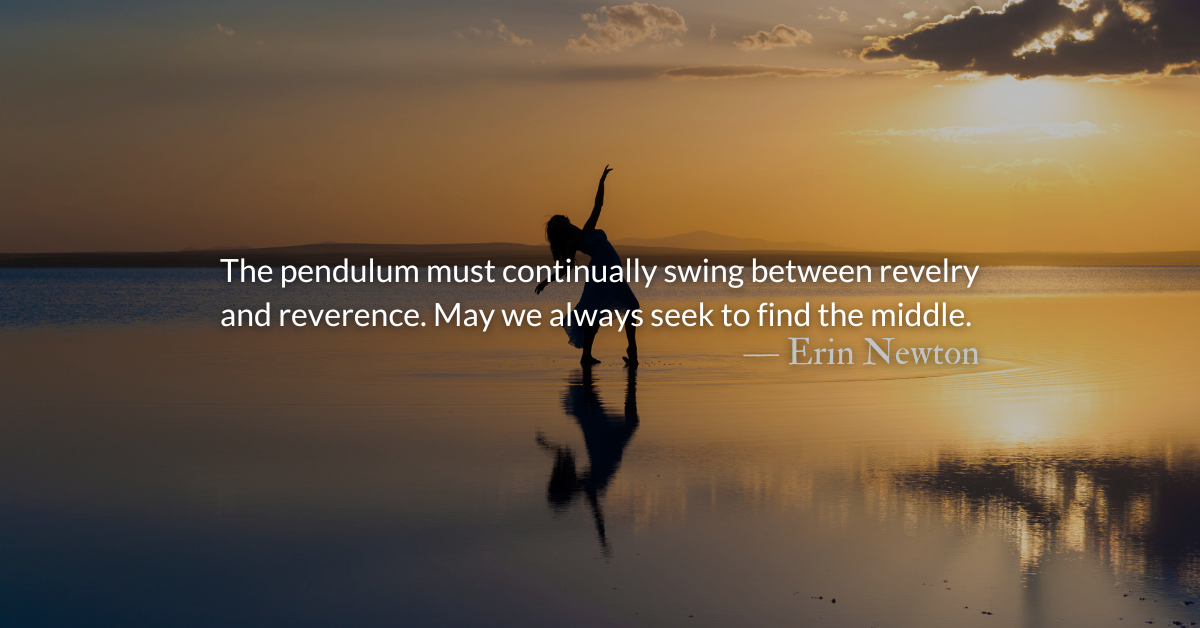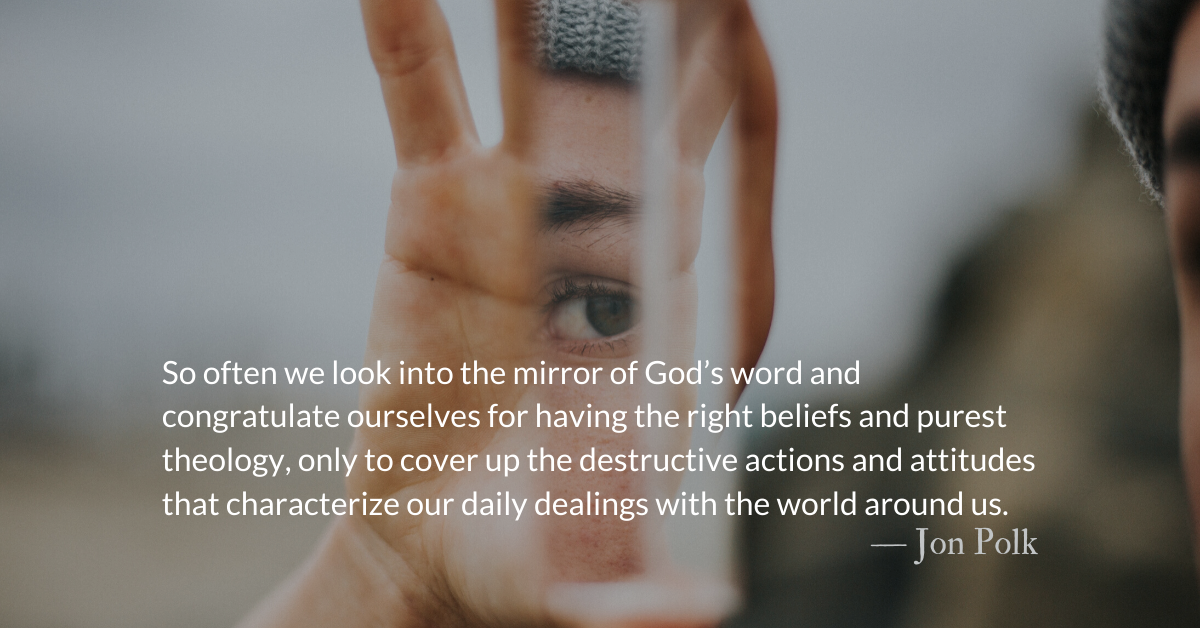Links for today’s readings:
Nov 19 Read: 1 Chronicles 13-14 Listen: (4:13) Read: Psalms 88 Listen: (1:58)
Scripture Focus: 1 Chronicles 13:7–10
7 They moved the ark of God from Abinadab’s house on a new cart, with Uzzah and Ahio guiding it. 8 David and all the Israelites were celebrating with all their might before God, with songs and with harps, lyres, timbrels, cymbals and trumpets.
9 When they came to the threshing floor of Kidon, Uzzah reached out his hand to steady the ark, because the oxen stumbled. 10 The Lord’s anger burned against Uzzah, and he struck him down because he had put his hand on the ark. So he died there before God.
Reflection: Revelry and Reverence
By Erin Newton
What is holy revelry without appropriate reverence?
Martin Luther is said to have proclaimed, “If you are not allowed to laugh in heaven, I don’t want to go there.” I concur with the desire for eternal laughter and frivolity. Yet some prefer to keep religion serious and devout, perhaps echoing the lyrics from Sound of Music, “How do you solve a problem like Maria?,” who was (according to the song) “a clown.”
David and the Israelites were fellow “clowns” celebrating the return of the ark—with all their might. The same account in 2 Samuel 6 tells of David’s wife Michal criticizing him for “going around half-naked . . . as any vulgar fellow would!” David says his celebration was merely an expression of joy.
In both accounts of the ark’s return, the fate of Uzzah is repeated. As a quick, seemingly absent-minded, reaction he failed to show the ark and by proxy, God, the proper respect. David danced and celebrated without care of his reputation or impression. Uzzah lapsed into religious carelessness. David was chastised. Uzzah died.
The juxtaposed stories of how a person responds in this religious setting is interesting. David was much like the “will-o’-the-wisp” nun Maria, carried on by his emotions and joy. The story of him dancing is often used to encourage others to hold nothing back emotionally, to praise God with every fiber of our being. Uzzah could have benefited a little from Mother Abbess, who sought to ensure obedience.
What of churches today? Are we to follow the lead of holy revelry and let our joy go unbounded? Or do we keep our minds focused on the holiness of God, knowing that a misstep into irreverence would only anger our Lord?
As they say, everything in moderation. And perhaps everything according to our context.
So many Christians today have lost the joy of the Lord. Perhaps their reading of God’s Word has been used to define faith as a stern list of do’s and don’ts. The focus is constantly on finding the right posture before God, always with downcast eyes and quiet reflection. This type of church would benefit from some revelry before God.
While God is the source and aim of our joy, loving God isn’t just a life of fun and laughter without morals and responsibility.
The pendulum must continually swing between revelry and reverence. May we always seek to find the middle.
Divine Hours Prayer: The Request for Presence
Send out your light and your truth, that they may lead me, and bring me to you holy hill and to your dwelling;
That I may go to the altar of God, to the God of my joy and gladness; and on the harp I will give thanks to you, O God my God. — Psalm 43.3-4
– From The Divine Hours: Prayers for Autumn and Wintertime by Phyllis Tickle.
Read more: Irreverently Abusing God’s Presence
Do we abuse God’s presence?…take “the Name” in vain?…weaponize God against enemies?…treat him like a magical charm?
Consider Supporting Our Work
Please consider becoming a donor. Support ad-free content that brings biblical devotionals to inboxes across the world.



